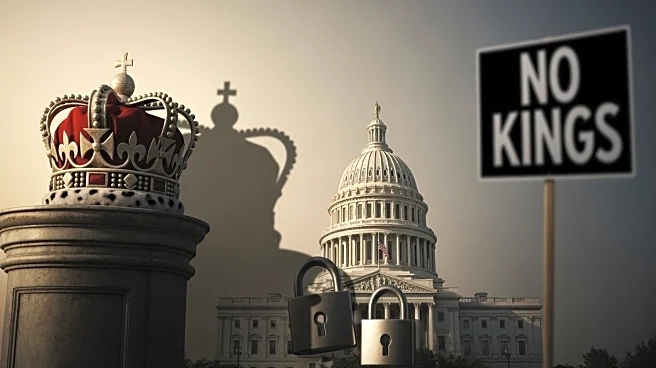What's Happening?
The U.S. government shutdown persists as House Speaker Mike Johnson refuses to swear in a Democratic representative-elect. Concurrently, 'No Kings' protests are taking place across the country, advocating against autocracy and for individual rights. These
protests are reminiscent of past demonstrations during President Trump's first term but now encompass a broader range of issues. Additionally, former National Security Adviser John Bolton has been indicted for mishandling classified materials, pleading not guilty to the charges.
Why It's Important?
The ongoing government shutdown highlights significant political gridlock, with potential impacts on federal services and employees. The 'No Kings' protests reflect widespread public discontent with perceived autocratic governance, potentially influencing future political discourse and policy-making. Bolton's indictment adds another layer of complexity to the political landscape, potentially affecting public trust in government officials and their handling of sensitive information. These events collectively underscore the current tensions within U.S. politics and governance.
What's Next?
The resolution of the government shutdown remains uncertain, with potential legal actions looming if the Democratic representative-elect is not sworn in. The outcome of Bolton's trial could have implications for how classified information is managed by government officials. The 'No Kings' protests may continue to gain momentum, potentially influencing upcoming elections and legislative priorities. Stakeholders, including political leaders and civil society groups, will likely continue to engage in discussions and actions to address these issues.















